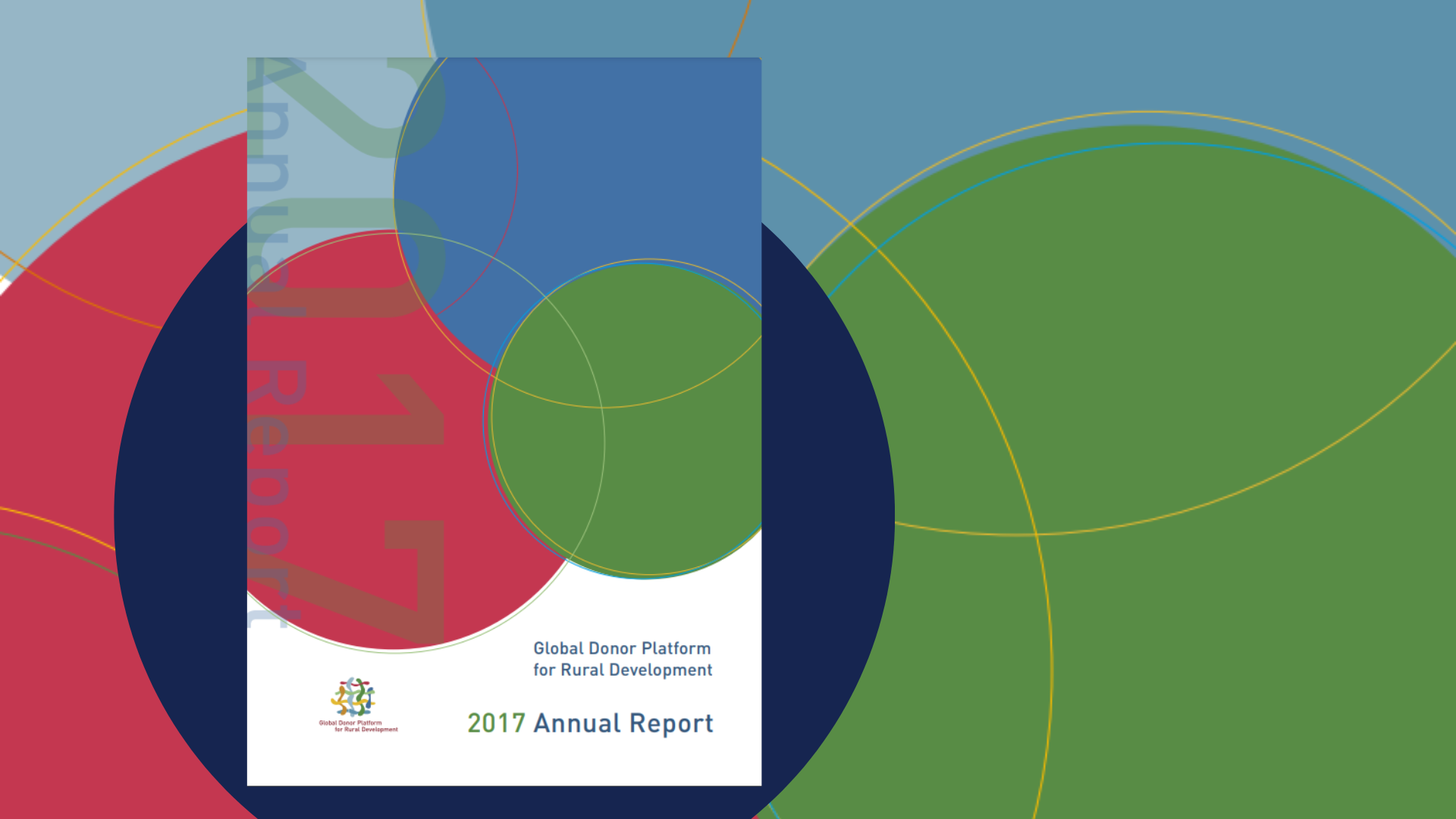Framing the future of rural development.
The universality and ambitions of Agenda 2030 will challenge development policy and operations in the next decade. The year 2017 showed that donor agencies and development finance institutions need to stop thinking in silos and sectors, but rather concentrate on interconnections within and across our development strategies and programs – towards greater realignment, efficiency and more coherent delivery of outcomes and joint impact.
Download the 2017 Annual Report

In 2017, the Global Donor Platform for Rural Development confirmed once again its strategic role in raising awareness for holistic approaches for food security policy and rural development, by promoting dialogue amongst donors and partners about the latest trends in agriculture and rural development sectors.
The year started with a vibrant Annual General Assembly (AGA) hosted by the European Commission in Brussels, Belgium. More than 100 participants gathered to discuss the future of rural development in the Agenda 2030 implementation process. The issue of complexity was addressed as well as the chances used to deal with the dynamics and turbulences of development. Members and partners agreed that there is a very strong case to boost sustainable agriculture and broaden the rural agenda by linking agriculture to other sectors, integrating crosscutting issues and considering rural-urban dynamics.
For the first time the AGA included a high-level session, where directors of several member organisations elaborated on the impact of the SDGs, the Paris Agreement and the new finance architecture created by the AAAA. They all modified substantially the development paradigm, putting extra pressure on ODA to create enabling factors to attract private finance for development. The members agreed that current development practices would not be sufficient to implement Agenda 2030 in rural areas. The discussions showed that the international community needs to develop flexible approaches to expand single project gains into long-term transformation. The debate around complexity confirmed once again the importance of strategic partnerships, innovation and exchange.
Two new members joined in 2017, bringing their own experience and expertise to the discussions. Overall, the focus of the development cooperation agenda shifted from understanding the process of rural transformation to implementing it. Many international stakeholders, including several members of the Platform, have chosen to focus on navigating the process of rural transformation through creating youth employment opportunities.
Publication date: July 2018
Share
More Publications
















































































































































































































